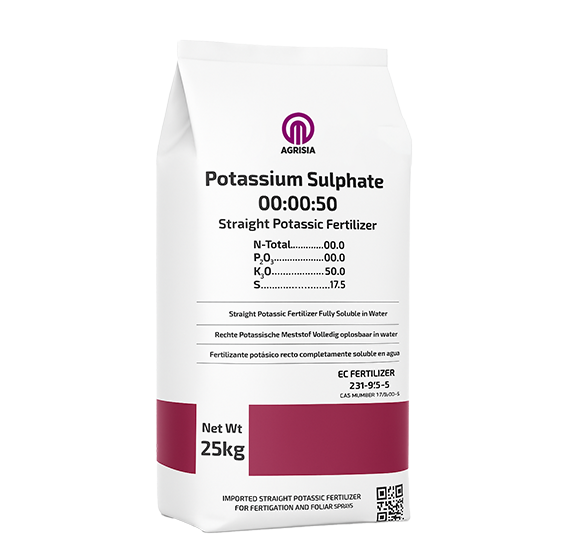The Most Durable Digital Vernier Calipers for Heavy Industrial Use

Most Durable Digital Vernier Calipers for Heavy Industrial Use
In heavy industrial environments—like machining floors, automotive plants, metal fabrication units, CNC workshops, and inspection labs—the tools you use are as important as the work you do. Precision, durability, and long service life are non-negotiable qualities. And among the most essential tools in any measurement toolkit, a digital vernier caliper stands out as a go-to instrument for fast, accurate, and reliable measurements.
But not every measuring tool can survive demanding conditions. Heavy-duty industrial work involves constant exposure to dust, oil, coolant, vibrations, accidental drops, and metal chips. This is where a durable and high-grade caliper becomes crucial. In this blog, you’ll learn what makes a caliper “industrial grade,” which features matter the most, how to evaluate accuracy, and what to consider before investing in a long-lasting model.
What Makes a Digital Caliper Durable Enough for Industrial Use?
A tool used every day on the shop floor needs more than basic accuracy. The construction quality, design features, and materials determine whether it can withstand rough usage and still deliver consistent readings.
Here are the top durability factors:
1. Hardened Stainless-Steel Construction
Industrial calipers must be built from hardened stainless steel. This prevents wear on the jaws, resists corrosion, and ensures smooth movement even after years of use.
2. IP54 or Higher Protection
Dust, coolant, oil, and moisture are common in workshops. Higher IP ratings help protect sensors, ensuring measurement stability.
3. Shock-Resistant Frame
Occasional drops happen—even with experienced machinists. A durable caliper is designed to absorb minor impacts without losing alignment.
4. Industrial-Grade Slider
The slider must remain smooth and consistent. Wear on the beam causes measurement variation, a serious issue in quality control.
Accuracy & Least Count: Why It Matters in Industrial Work
Even the toughest caliper must maintain precise readings. Industrial users rely heavily on consistent accuracy, especially during critical inspection tasks.
The digital vernier caliper least count determines the smallest difference it can measure—commonly 0.01 mm in professional-grade tools. A lower least count is a strong indication of better precision.
Along with this, check the Maximum Permissible Error (MPE), usually ±0.02 mm for high-quality models. Anything higher is not recommended for heavy industrial use.
Top Features That Define a Heavy-Duty Digital Caliper
A digital vernier caliper designed for industrial applications must have more than basic measurement functions. Here’s what professionals should look for:
1. Large, Clear LCD Display
High contrast helps machinists read measurements even in low-light or dusty environments.
2. Reinforced Jaws
Outer and inner jaws must resist wear to maintain long-term accuracy.
3. Fast Response Sensor
Cheap sensors can lag or fluctuate. Industrial-grade sensors give immediate and stable readings.
4. Auto On/Off Function
This saves battery life, especially during long production shifts.
5. Heavy-Duty Locking Screw
A strong locking mechanism prevents measurement drift during repeated use.
Why Industrial Users Prefer Longer Calipers
Industrial parts often have more depth, width, or diameter. While 150 mm calipers work well for standard tasks, many professionals prefer the 200 mm or 300 mm variants for handling larger components.
Naturally, the digital vernier caliper 300mm price is higher due to its size, beam strength, and increased accuracy requirements at longer lengths. However, for machine shops working with castings, shafts, and larger metal blocks, the investment is easily justified.
Evaluating Durability Based on Price
Not every expensive tool is durable—and not every affordable one is weak. But the digital vernier caliper price does give a rough idea of:
-
Material quality
-
Sensor grade
-
Accuracy class
-
Beam hardness
-
Jaw strength
-
IP rating
Industrial-grade calipers often cost more than basic models due to hardened steel construction and advanced electronics. When choosing a tool for long-term use, don’t choose solely based on price—focus on build quality and performance reviews.
How to Test Whether a Caliper Is Truly Durable
Before buying, consider these durability checkpoints:
1. Jaw Alignment Test
Close the jaws and hold them toward light—no gap should be visible.
2. Smooth Sliding Test
The slider should move with resistance-free smoothness.
3. Repeatability Check
Measure the same object multiple times. Results must be identical.
4. Frame Rigidity
Apply slight pressure on jaws. Good calipers do not flex.
5. Display Stability
Readings should not fluctuate during measurement.
A high-quality digital vernier caliper passes all these tests without issues.
Best Use Cases for Durable Calipers
Heavy-duty calipers excel in environments such as:
-
CNC machining
-
VMC operations
-
Automotive component inspection
-
Metal fabrication
-
Tool room operations
-
Industrial quality checks
-
Maintenance and repair (MRO) departments
In these situations, a digital vernier caliper with hardened jaws and a reliable sensor system becomes a long-term asset.
Maintenance Tips to Extend Durability
Even the best tool needs care. Follow these:
-
Wipe jaws after every use
-
Store in a protective case
-
Replace weak batteries on time
-
Keep away from magnetic fields
-
Avoid excessive force while measuring
-
Calibrate periodically for accuracy
These simple steps keep your digital vernier caliper performing like new.
Choosing the Most Durable Options in 2025
When selecting a durable digital vernier caliper, prioritize:
-
Hardened steel construction
-
IP54 or higher protection
-
Reinforced jaws
-
Smooth, stable slider
-
Accurate sensor technology
-
Good brand reliability
-
Positive user reviews
Shortlist calipers based on the type of industrial workload and measurement range required.
Conclusion: Why Durability Matters in Industrial Environments
Durability directly impacts accuracy, productivity, and cost efficiency. A trusted digital vernier caliper ensures consistent measurement results even under tough conditions. Investing in a strong, reliable caliper minimizes downtime, reduces measurement errors, and improves workshop efficiency.
If you're looking for durable and precision-focused measuring tools, Jaibros offers a reliable range known for solid build quality, long life, and consistent performance. Their tools are designed for industrial engineers, machinists, and inspection professionals who need trustworthy accuracy every day.
FAQs
1. What makes a digital caliper suitable for heavy industrial use?
Hardened stainless steel, reinforced jaws, smooth sliding, IP protection, and a stable sensor system make it suitable for industrial environments.
2. What is the least count of a digital caliper?
Most professional models come with a digital vernier caliper least count of 0.01 mm, which is ideal for precision tasks.
3. Are larger calipers better for industrial work?
For bigger components, yes. Longer variants, especially 300 mm, provide better reach and are widely used in machine shops.
4. Why does digital caliper price vary so much?
The digital vernier caliper price depends on build quality, accuracy class, brand, sensor technology, and IP rating.
5. Is a 300 mm digital caliper worth buying?
If you work with large components or castings, the digital vernier caliper 300mm price is justified due to extended measuring capability.





